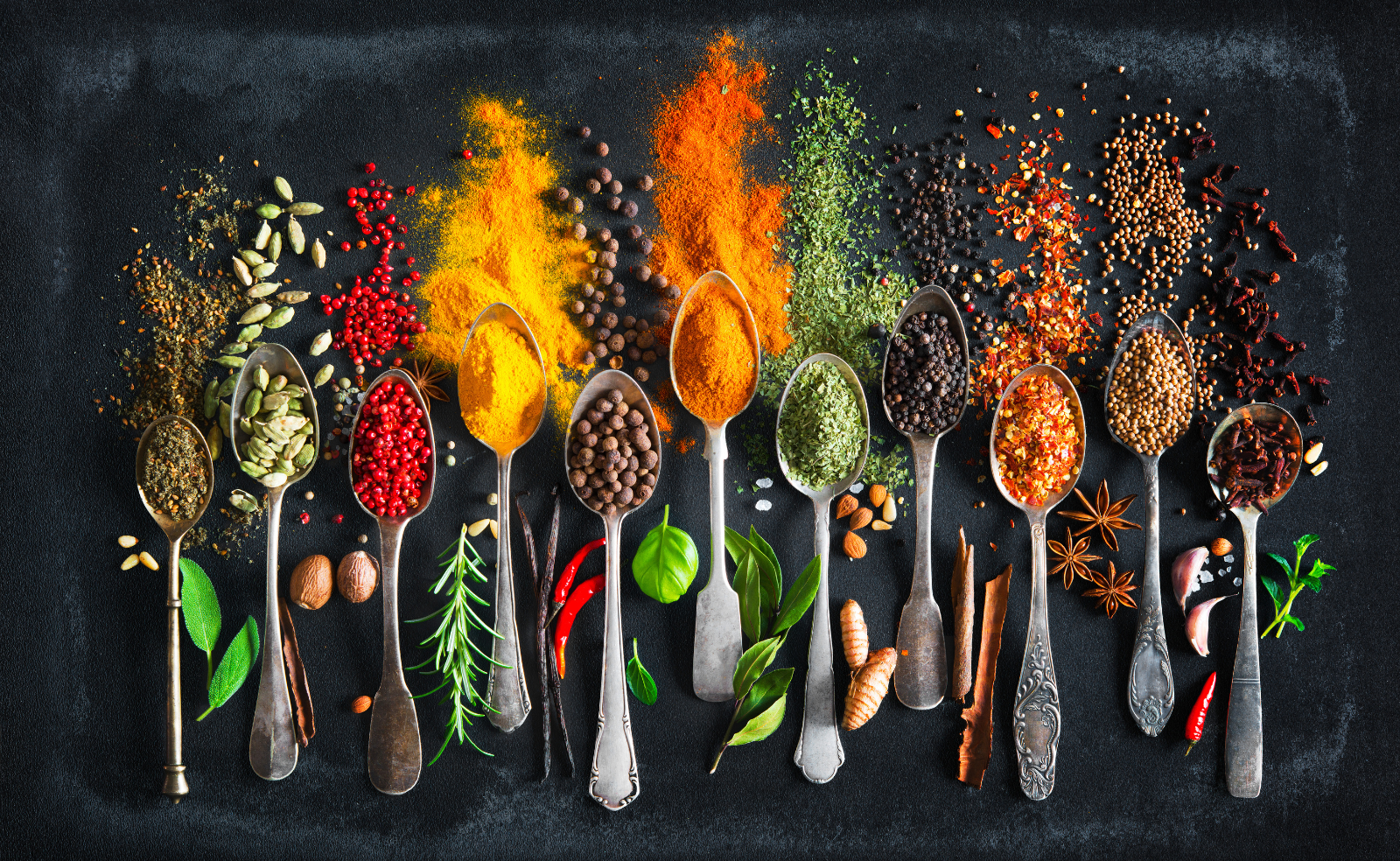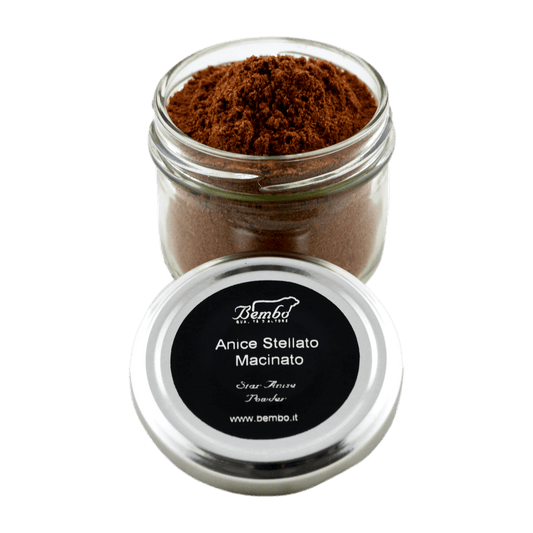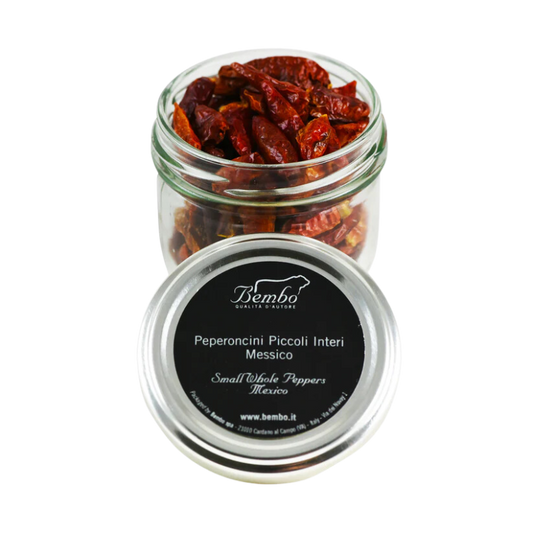-
Ground Star Anise
Regular price €10,00 EURRegular priceUnit price per -
Whole Small Chillies - Mexico
Regular price €10,00 EURRegular priceUnit price per
Discover the World of Spices
Learn more about spices
In the infinite culinary universe , there are precious elements that are able to enhance the flavor of dishes with minimal effort. We are talking about spices , but what are spices? Precious gifts of nature , capable of transporting us to exotic places with just one taste, they contain within themselves the history and traditions of ancient cultures . Let's discover together how these gems can transform your kitchen and enrich your table, opening the doors to a world of taste and health .
The history of spices
The history of spices is a fascinating journey that spans continents and centuries, telling of bold explorations , flourishing trade and the birth of empires. These aromatic substances have played crucial roles in human history, pushing humanity towards the meeting of distant cultures and the opening of trade routes that have changed the course of history.
The origins of the use of spices date back over 4,000 years , with the first evidence coming from ancient Egypt , where they were used for religious rituals , embalming and, of course, cooking. In ancient times, spices such as black pepper , cinnamon, green cardamom and ginger were more precious than gold, a symbol of wealth and power .
Desiring direct access to these wonders, the great powers of the age, including the Romans , Arabs , and later Europeans, undertook perilous voyages across barren deserts and vast oceans. India , with its exotic spices, became a key destination for traders and adventurers . The search for safe routes to India and the " spice islands " (modern Indonesia and Sri Lanka) was a major motivation behind the great explorations of the 15th and 16th centuries, leading to the accidental discovery of the New World by Christopher Columbus.
The Spice Age was not only a time of trade , but also of encounters between different cultures, which influenced culinary traditions , medicine, and even world politics . Competition for control of spice routes led to the formation of trading companies.
Spices: List of the most popular
Each spice brings with it a story , a unique aroma and properties that can enhance any recipe. Let's discover some of the most loved spices in the world and their distinctive characteristics .
Known as the " king of spices ," black pepper is arguably the most universal and versatile spice. Native to India, black pepper offers a pungent, slightly spicy flavor that is perfect for seasoning meats, soups, and sauces. In addition to its culinary qualities, it is prized for its health benefits, including antioxidant and digestive stimulant properties .
Sweet and aromatic, cinnamon is a popular spice in desserts . Coming from the inner bark of trees of the Cinnamomum genus, cinnamon is essential in sweet recipes and hot drinks such as mulled wine . It is also rich in antioxidants and has anti-inflammatory properties .
Characterized by its bright yellow color and earthy flavor, turmeric is a typical ingredient in Indian and Southeast Asian cuisine. In addition to being the ingredient that gives curry its distinctive color, turmeric is known for its powerful anti-inflammatory and antioxidant properties , thanks to curcumin , its active ingredient.
Curry is not a single spice, but a harmonious blend of Indian spices. that creates dishes rich in flavor and color, just like garam masala . Originating from the Indian subcontinent , curry can vary significantly in its ingredients, depending on the region and the recipe. Typically, it includes turmeric, coriander, cumin, ginger, and chili pepper. The use of curry in international cuisines testifies to its versatility and ability to adapt to different culinary traditions, making it one of the most loved and widespread blends in the world.
How to use spices in cooking
The art of using spices in cooking can completely transform a simple meal into a true sensory experience . First of all, it is essential to familiarize yourself with the various types available. The right combinations can make the difference: coriander and cumin go very well with legume-based dishes and meats , while nutmeg and cloves are widely used for desserts and hot drinks.
Spices are great allies in marinades , able to penetrate deeply into foods and enrich them with flavor. A marinade not only tenderizes meat and fish but also enriches their flavor and aroma. Slow cooking is the ideal method to bring out the best in spices. Stews and broths benefit enormously from the addition of spices, which slowly meld with the other ingredients, creating complex and balanced flavors .
Dosage is key when using spices. It’s always best to start with small amounts and adjust the flavor as you go. Also, the timing of the addition of spices during cooking can vary the intensity of the flavor ; add them at the beginning for a deeper, more integrated flavor, or towards the end for a fresher, more distinct aroma.
Spices and Health: The Benefits of Spices
Spices are not only valuable allies in the kitchen to enhance the flavor of dishes , but they are also full of health benefits . Many spices are rich in antioxidants , substances that fight free radicals in the body, reducing oxidative stress and preventing chronic diseases. Cinnamon, for example, is known for its high antioxidant properties , as are ginger and cloves.
Chronic inflammation is at the root of many diseases, including arthritis, heart disease , and Alzheimer's. Turmeric, thanks to the active ingredient curcumin , has been shown to have powerful anti-inflammatory effects, helping to reduce the risk of these conditions.
Spices can play a vital role in improving digestion and preventing issues like bloating and indigestion. Ginger , for example, is widely recognized for its properties that aid in digestion and help fight nausea . Certain varieties have long been shown to have strong antibacterial and antimicrobial properties , making them useful not only for preserving food but also for protecting the body from harmful microorganisms. Garlic, for example, is renowned for its ability to fight bacteria and viruses .



